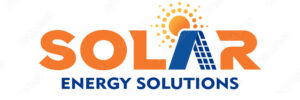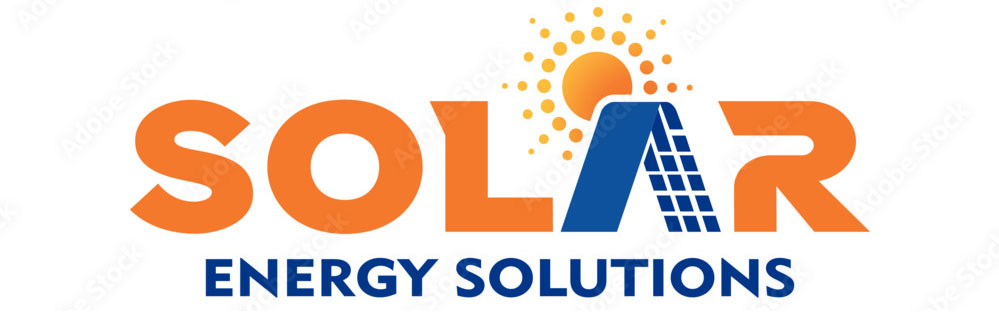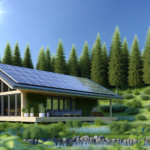Introduction to Solar Tech Seminars
The Growing Importance of Solar Technology
In today’s world, the significance of solar technology cannot be overstated. As the global community grapples with the pressing challenges of climate change and environmental degradation, solar power emerges as a beacon of hope. Harnessing the sun’s energy offers a sustainable and renewable alternative to fossil fuels, reducing our carbon footprint and mitigating the adverse effects of global warming. Moreover, advancements in solar technology have made it more efficient and accessible, enabling a broader range of applications from residential rooftops to large-scale solar farms. The increasing adoption of solar power is not just a trend but a crucial step towards a greener and more sustainable future.
Why Attend a Solar Tech Seminar?
Attending a solar tech seminar provides numerous benefits for both novices and seasoned professionals. These seminars are designed to offer comprehensive insights into the latest advancements in solar technology, practical applications, and future trends. Here are some compelling reasons to attend:
- Knowledge and Skills: Gain in-depth understanding and hands-on experience with cutting-edge solar technologies.
- Networking Opportunities: Connect with industry experts, fellow enthusiasts, and potential business partners.
- Professional Development: Enhance your career prospects by staying updated with the latest industry standards and certifications.
- Practical Applications: Learn how to implement solar solutions in various settings, from residential to commercial and outdoor activities.
Whether you are looking to jumpstart a career in the solar industry, seeking solutions for energy independence, or simply passionate about sustainable living, solar tech seminars offer invaluable resources and opportunities.
Overview of the Article
This article aims to provide a comprehensive guide to solar tech seminars, highlighting their importance and the wealth of knowledge they offer. We will delve into the following sections:
- Understanding Solar Technology: Explore the basic principles, types of solar panels, and recent advancements in the field.
- Benefits of Solar Power for Outdoor Enthusiasts: Discover how solar power enhances sustainability, energy independence, and convenience for outdoor activities.
- Key Topics Covered in Solar Tech Seminars: Learn about the latest innovations, practical applications, maintenance tips, and future trends in solar technology.
- Real-Life Applications and Success Stories: Read inspiring case studies and success stories from outdoor enthusiasts and off-grid living advocates.
- How to Choose the Right Solar Tech Seminar: Get tips on identifying your needs, evaluating seminar content, and making informed decisions.
- Conclusion and Next Steps: Recap key points and provide actionable steps for continuing your solar tech journey.
By the end of this article, you will have a clear understanding of the value of solar tech seminars and how they can empower your adventures with the latest innovations in solar technology.
Understanding Solar Technology
Basic Principles of Solar Power
Solar power harnesses energy from the sun and converts it into electricity or heat. The fundamental principle behind solar power is the photovoltaic effect, where certain materials can generate an electric current when exposed to sunlight. Solar panels, composed of photovoltaic cells, capture sunlight and convert it into direct current (DC) electricity. This DC electricity is then converted into alternating current (AC) by an inverter, making it usable for homes, businesses, and various applications.
Types of Solar Panels and Their Uses
There are several types of solar panels, each with unique characteristics and applications:
- Monocrystalline Solar Panels: Known for their high efficiency and sleek appearance, these panels are made from a single crystal structure. They are ideal for residential and commercial installations where space is limited.
- Polycrystalline Solar Panels: These panels are made from multiple silicon crystals and are generally less efficient than monocrystalline panels. However, they are more cost-effective and suitable for larger installations where space is not a constraint.
- Thin-Film Solar Panels: Lightweight and flexible, thin-film panels are made from materials like cadmium telluride or amorphous silicon. They are less efficient but can be used in a variety of applications, including portable solar chargers and building-integrated photovoltaics.
- Bifacial Solar Panels: These panels can capture sunlight from both sides, increasing their efficiency. They are often used in ground-mounted installations and areas with high albedo surfaces, such as snow-covered regions.
Advancements in Solar Technology
The field of solar technology is rapidly evolving, with numerous advancements enhancing efficiency, affordability, and versatility:
- Perovskite Solar Cells: These cells have shown great promise due to their high efficiency and low production costs. Researchers are working on improving their stability and scalability for commercial use.
- Solar Tracking Systems: By adjusting the angle of solar panels to follow the sun’s path, tracking systems can significantly increase energy capture. Dual-axis trackers, in particular, offer the highest efficiency gains.
- Building-Integrated Photovoltaics (BIPV): BIPV systems integrate solar panels into building materials, such as windows, roofs, and facades. This innovation allows for seamless integration of solar power into urban environments.
- Energy Storage Solutions: Advances in battery technology, such as lithium-ion and flow batteries, are improving the storage and management of solar energy. This development is crucial for ensuring a reliable power supply, especially in off-grid and remote locations.
- Smart Solar Systems: The integration of Internet of Things (IoT) technology with solar systems enables real-time monitoring and optimization. Smart inverters and energy management systems help maximize efficiency and provide valuable data for maintenance and troubleshooting.
Understanding these principles, types, and advancements in solar technology is essential for anyone looking to harness the power of the sun effectively. Whether you’re an outdoor enthusiast, a homeowner, or a business owner, staying informed about the latest innovations can help you make the most of solar energy.
Benefits of Solar Power for Outdoor Enthusiasts
Sustainability and Environmental Impact
For outdoor enthusiasts, the natural world is a sanctuary that must be preserved. Solar power offers a sustainable energy solution that aligns perfectly with this ethos. By harnessing the sun’s energy, solar technology reduces reliance on fossil fuels, thereby decreasing greenhouse gas emissions and minimizing the carbon footprint. This is particularly important for those who spend a lot of time in nature and wish to protect it for future generations. Utilizing solar power means fewer pollutants are released into the environment, contributing to cleaner air and water, and promoting biodiversity.
Energy Independence and Reliability
One of the most compelling benefits of solar power for outdoor enthusiasts is the promise of energy independence. When you’re miles away from the nearest power grid, having a reliable source of energy is crucial. Solar panels can provide a consistent and dependable power supply, whether you’re camping in the wilderness, hiking remote trails, or sailing on open waters. This independence not only enhances the safety of your adventures but also allows you to enjoy modern conveniences like GPS devices, portable refrigerators, and communication tools without worrying about running out of power.
Portability and Convenience
Modern solar technology has made significant strides in terms of portability and convenience. Today’s solar panels are lightweight, compact, and designed for easy transport, making them ideal for outdoor activities. Portable solar chargers and foldable solar panels can be easily packed into a backpack or stowed on a boat, providing a versatile energy solution that can be set up and used anywhere the sun shines. This convenience extends to the ease of use; many solar devices are plug-and-play, requiring minimal setup and maintenance. This means you can spend more time enjoying your outdoor activities and less time worrying about your energy needs.
In summary, solar power offers a range of benefits that make it an excellent choice for outdoor enthusiasts. Its sustainability helps protect the environment, its reliability ensures energy independence, and its portability adds a layer of convenience that enhances any outdoor adventure. By embracing solar technology, you can empower your adventures with clean, reliable, and convenient energy.
Key Topics Covered in Solar Tech Seminars
Latest Innovations in Solar Technology
Solar technology is evolving at a rapid pace, and staying updated with the latest innovations is crucial for anyone interested in harnessing solar power. Seminars often cover cutting-edge advancements such as **bifacial solar panels**, which capture sunlight from both sides, and **perovskite solar cells**, known for their high efficiency and low production costs. Additionally, attendees can learn about **solar tracking systems** that adjust the angle of solar panels to follow the sun, maximizing energy capture throughout the day. These innovations not only improve efficiency but also make solar power more accessible and cost-effective.
Practical Applications for Outdoor Activities
For outdoor enthusiasts, understanding the practical applications of solar technology can significantly enhance their adventures. Seminars provide insights into various solar-powered gadgets and systems designed for outdoor use. Topics often include **portable solar chargers** for keeping devices powered during long hikes, **solar-powered camping gear** like lanterns and stoves, and **solar panels for RVs and boats**. These applications not only offer convenience but also promote sustainability by reducing reliance on traditional power sources. Attendees can expect to see demonstrations and real-life examples of how these technologies can be seamlessly integrated into their outdoor activities.
Maintenance and Troubleshooting Tips
Maintaining solar equipment is essential for ensuring its longevity and efficiency. Seminars typically offer comprehensive sessions on **maintenance best practices** and **troubleshooting common issues**. Topics may include **cleaning solar panels** to remove dirt and debris, **checking connections and wiring** for wear and tear, and **monitoring system performance** using specialized software. Additionally, experts often share tips on **diagnosing and fixing common problems**, such as reduced power output or faulty inverters. These sessions equip attendees with the knowledge to keep their solar systems running smoothly and efficiently.
Future Trends in Solar Power
Looking ahead, solar tech seminars often explore future trends that could shape the industry. Topics might include the potential of **solar energy storage solutions**, such as advanced batteries that store excess energy for later use, and the integration of **solar power with smart grid technology**. Another exciting trend is the development of **building-integrated photovoltaics (BIPV)**, where solar panels are seamlessly incorporated into building materials like windows and roofs. These forward-looking sessions provide a glimpse into the future of solar power, helping attendees stay ahead of the curve and make informed decisions about their solar investments.
By covering these key topics, solar tech seminars empower attendees with the knowledge and skills needed to make the most of the latest innovations in solar technology. Whether you’re an outdoor enthusiast looking to enhance your adventures or a homeowner interested in sustainable energy solutions, these seminars offer valuable insights and practical advice.
Real-Life Applications and Success Stories
Case Studies from Outdoor Enthusiasts
Outdoor enthusiasts have increasingly turned to solar technology to power their adventures, and the results have been nothing short of transformative. Take, for example, the case of Sarah and John, avid hikers who embarked on a month-long trek through the Appalachian Trail. Equipped with portable solar panels, they were able to keep their GPS devices, smartphones, and even a small portable stove charged throughout their journey. This not only enhanced their safety by ensuring constant communication but also allowed them to document their adventure in real-time, sharing their experiences with a growing online community.
Another compelling story is that of Mark, a solo kayaker who navigated the entire length of the Mississippi River. Using a compact solar charger, Mark powered his navigation equipment and emergency radio, ensuring he could call for help if needed. His journey, which he documented in a popular blog, inspired many to consider the reliability and convenience of solar power for long-term outdoor activities.
Off-Grid Living Success Stories
Off-grid living has become a viable and attractive option for many, thanks to advancements in solar technology. One notable success story is that of the Thompson family, who decided to live off-grid in a remote part of Colorado. By installing a comprehensive solar power system, they were able to generate enough electricity to power their entire home, including heating, lighting, and appliances. The Thompsons have not only reduced their carbon footprint but also achieved a level of energy independence that many aspire to.
Similarly, Jane and Tom, a couple who retired to a secluded cabin in the woods, have embraced off-grid living with the help of solar power. Their solar setup includes panels, batteries, and an inverter, allowing them to enjoy modern conveniences without relying on the grid. Their story has been featured in several sustainability magazines, highlighting how solar technology can make off-grid living both comfortable and sustainable.
Innovative Uses in Camping, Hiking, and Boating
Solar technology has found innovative applications in various outdoor activities, making camping, hiking, and boating more enjoyable and sustainable. For campers, solar-powered tents have become a game-changer. These tents come equipped with built-in solar panels that can charge devices and provide lighting, making the camping experience more convenient and eco-friendly.
Hikers have also benefited from solar backpacks, which feature integrated solar panels that can charge electronic devices on the go. This innovation has been particularly useful for long-distance hikers who need to keep their devices powered for navigation and emergency communication.
Boating enthusiasts have not been left behind either. Solar panels installed on boats can power essential equipment such as navigation systems, lights, and even small appliances. This not only reduces the reliance on fuel but also makes boating more environmentally friendly. One notable example is the Solar Voyager, an autonomous boat that successfully crossed the Atlantic Ocean powered entirely by solar energy. This remarkable feat demonstrated the potential of solar technology in marine applications and inspired many to consider solar power for their boating needs.
In conclusion, real-life applications and success stories from outdoor enthusiasts, off-grid living pioneers, and innovative uses in camping, hiking, and boating underscore the transformative impact of solar technology. These stories not only highlight the practical benefits of solar power but also inspire others to explore its potential in their own adventures.
How to Choose the Right Solar Tech Seminar
Identifying Your Needs and Goals
Before diving into the myriad of available solar tech seminars, it’s crucial to first identify your specific needs and goals. Are you a beginner looking to understand the basics of solar technology, or are you an experienced professional seeking advanced knowledge on the latest innovations? Perhaps you are an outdoor enthusiast wanting to learn how to integrate solar power into your adventures. Clearly defining your objectives will help you narrow down the options and select a seminar that aligns with your aspirations.
Evaluating Seminar Content and Speakers
Once you have a clear understanding of your goals, the next step is to evaluate the content and speakers of the seminars you are considering. Look for seminars that offer a comprehensive curriculum covering the topics you are interested in. Check if the seminar includes hands-on training, case studies, and practical applications, as these elements can significantly enhance your learning experience. Additionally, research the credentials and experience of the speakers. Seminars led by industry experts and seasoned professionals are more likely to provide valuable insights and up-to-date information.
Considering Location and Format
The location and format of the seminar are also important factors to consider. Some seminars are held in-person at specific locations, while others are available online. In-person seminars offer the advantage of face-to-face interaction, networking opportunities, and hands-on training. On the other hand, online seminars provide flexibility and convenience, allowing you to learn from the comfort of your home. Consider your personal preferences, schedule, and the logistics involved in attending an in-person seminar when making your decision.
Reading Reviews and Testimonials
Finally, take the time to read reviews and testimonials from past participants. These can provide valuable insights into the quality of the seminar, the effectiveness of the instructors, and the overall learning experience. Look for feedback on the seminar’s organization, content, and the practical applicability of the knowledge gained. Positive reviews and high ratings are good indicators of a reputable and worthwhile seminar. Additionally, consider reaching out to past participants for more detailed feedback and recommendations.
By carefully considering your needs and goals, evaluating the seminar content and speakers, considering the location and format, and reading reviews and testimonials, you can make an informed decision and choose the right solar tech seminar to empower your adventures with the latest innovations.
Conclusion and Next Steps
Recap of Key Points
As we conclude our exploration of solar tech seminars, it’s essential to revisit the key points discussed throughout this article. We began by understanding the growing importance of solar technology and why attending a solar tech seminar can be a game-changer for outdoor enthusiasts. We delved into the basic principles of solar power, the different types of solar panels, and the latest advancements in the field. The benefits of solar power, such as sustainability, energy independence, and portability, were highlighted, showcasing how they can enhance your outdoor adventures.
We also covered the key topics typically addressed in solar tech seminars, including the latest innovations, practical applications, maintenance tips, and future trends. Real-life applications and success stories provided tangible examples of how solar technology is being utilized in various outdoor activities. Finally, we discussed how to choose the right seminar by identifying your needs, evaluating content and speakers, considering location and format, and reading reviews.
Taking Action: Registering for a Seminar
Now that you are equipped with comprehensive knowledge about solar tech seminars, it’s time to take action. **Registering for a seminar** is a straightforward process, but it requires some planning. Here are the steps to get you started:
1. **Identify Your Needs and Goals**: Determine what you hope to achieve by attending a seminar. Are you looking to enhance your knowledge, network with professionals, or find practical solutions for your outdoor activities?
2. **Research Available Seminars**: Look for seminars that align with your goals. Check the content, speakers, and format to ensure they meet your expectations.
3. **Check Availability and Register**: Once you’ve found a suitable seminar, check for availability. Many seminars have limited spots, so it’s crucial to register early. You can usually register online or by calling the provided contact number.
4. **Prepare for the Seminar**: Gather any necessary materials and make travel and lodging arrangements if the seminar is in-person. For online seminars, ensure you have a reliable internet connection and the required software.
Remember, some seminars offer waiting lists if they are fully booked. If you find yourself on a waiting list, stay prepared to register quickly if a spot opens up.
Continuing Your Solar Tech Journey
Attending a solar tech seminar is just the beginning of your journey into the world of solar technology. Here are some ways to continue your learning and application:
– **Stay Updated**: Follow industry news, subscribe to relevant journals, and join online forums to stay informed about the latest advancements in solar technology.
– **Network**: Build connections with other enthusiasts and professionals you meet at seminars. Networking can provide valuable insights and opportunities for collaboration.
– **Apply Your Knowledge**: Start small by incorporating solar technology into your outdoor activities. Experiment with different setups and learn from your experiences.
– **Further Education**: Consider enrolling in advanced courses or certifications to deepen your expertise. Many institutions offer specialized programs in solar technology.
– **Share Your Success**: Document your experiences and share them with the community. Whether through blogs, social media, or local meetups, your insights can inspire others to embrace solar technology.
By taking these steps, you can continue to empower your adventures with the latest innovations in solar technology, contributing to a more sustainable and energy-independent future.






